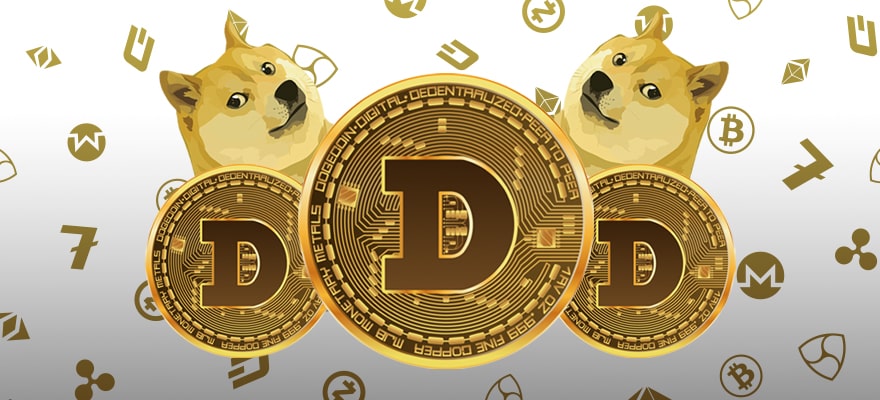The integration of crypto assets into traditional financial markets marks a pivotal shift in global finance. As cryptocurrencies move from niche digital assets to mainstream financial instruments, the relationship between these two worlds continues to evolve, posing both opportunities and challenges. This article explores how crypto assets are being integrated into traditional financial systems, the benefits of this convergence, the hurdles that must be overcome, and what the future may hold for this intersection.
The Rise of Crypto Assets
Cryptocurrencies like Bitcoin, Ethereum, and Stablecoins have emerged as prominent financial tools, offering decentralized alternatives to conventional currencies and assets. Since their inception, crypto assets have been recognized for their ability to provide financial inclusion, security, and transparency through blockchain technology. Initially viewed as volatile and speculative investments, crypto assets are now gaining legitimacy in the eyes of institutional investors, leading to a growing demand for their integration into traditional financial markets.
Ways Crypto is Being Integrated into Traditional Finance
1. Exchange-Traded Products (ETPs): The rise of crypto-based exchange-traded products, such as Bitcoin ETFs, has made it easier for traditional investors to gain exposure to cryptocurrencies without directly purchasing or holding digital assets. These financial products allow for broader market access, enabling traditional financial institutions to offer crypto-related investment opportunities through familiar mechanisms.
2. Custody Services: Institutional investors require secure methods for holding crypto assets, leading to the development of crypto custody services by major financial firms. Companies like Fidelity and BNY Mellon have launched custody solutions that store digital assets on behalf of clients, ensuring compliance with regulatory standards while maintaining security.
3. Blockchain Integration in Banking: Traditional financial institutions are beginning to adopt blockchain technology for internal processes like cross-border payments, settlements, and trade finance. By leveraging blockchain’s decentralized nature, banks can reduce transaction times and lower costs, all while benefiting from enhanced security.
4. Tokenization of Traditional Assets: Tokenization refers to converting traditional assets such as real estate, stocks, or bonds into digital tokens that can be traded on a blockchain. This integration offers liquidity, fractional ownership, and global access to previously illiquid or hard-to-trade assets. By enabling the tokenization of assets, crypto is reshaping the way traditional markets operate.
5. Decentralized Finance (DeFi) and Institutional Adoption: Although DeFi platforms operate independently of traditional financial institutions, their rise has caught the attention of banks and asset managers looking to integrate DeFi protocols into their services. Yield farming, staking, and decentralized lending models are being explored as alternative investment vehicles by forward-thinking traditional institutions.
Benefits of Integration
1. Increased Market Efficiency: The fusion of crypto and traditional finance can lead to greater market efficiency by reducing the need for intermediaries, enabling faster transactions, and offering transparency in asset tracking. Blockchain’s decentralized nature allows for real-time settlement of transactions, eliminating the delays that often occur in traditional finance.
2. Diversification for Investors: By offering crypto assets as part of traditional financial portfolios, institutions can provide their clients with greater diversification. Cryptocurrencies and blockchain-based assets are often viewed as uncorrelated with traditional markets, making them attractive to investors seeking to hedge against macroeconomic risks.
3. Enhanced Liquidity: The tokenization of traditional assets, coupled with the 24/7 nature of crypto trading, can significantly enhance liquidity in the financial markets. This offers a more dynamic and accessible environment for both retail and institutional investors.
4. Financial Inclusion: One of the most significant promises of crypto is its potential to promote financial inclusion. By integrating crypto assets with traditional financial markets, individuals in underbanked regions may gain access to global financial services, bypassing the limitations of local financial infrastructure.
Challenges of Integration
1. Regulatory Uncertainty: One of the most significant hurdles in integrating crypto into traditional finance is the lack of consistent regulatory frameworks. Governments around the world are grappling with how to regulate crypto assets, balancing the need for investor protection with fostering innovation. Inconsistent regulations can create confusion for both crypto firms and traditional institutions looking to adopt these assets.
2. Security Concerns: While blockchain technology is inherently secure, the rise of crypto hacks and scams has raised concerns about the security of digital assets. For traditional institutions, ensuring the safety of client funds when dealing with crypto assets remains a significant concern.
3. Volatility: Cryptocurrencies are notorious for their price volatility, which can be unsettling for traditional investors used to more stable financial instruments. Integrating crypto into mainstream finance requires mitigating this volatility to make it palatable for risk-averse investors.
4. Technological Barriers: Traditional financial institutions may struggle with the technological complexity of integrating blockchain and crypto services. Legacy systems and outdated infrastructure can pose significant challenges when adopting blockchain technologies, requiring substantial investment in technical upgrades and expertise.
The Future of Crypto Integration in Traditional Markets
The convergence of crypto assets and traditional finance is still in its early stages, but the potential for transformative change is evident. As regulatory clarity improves and more institutional investors enter the space, the lines between these two worlds are likely to blur further. The adoption of crypto-related financial products, blockchain technology, and decentralized finance protocols will continue to grow, offering enhanced market efficiency, increased accessibility, and diversified investment opportunities.
The collaboration between centralized financial institutions and decentralized crypto technologies presents a powerful opportunity to reshape the global financial landscape. As both sides learn from each other, the integration of crypto assets into traditional markets will not only create new financial products and services but will also redefine how value is exchanged and stored in the digital age.
The integration of crypto assets into traditional financial markets represents a new era of financial innovation. From crypto ETFs and custody services to blockchain adoption and DeFi, the melding of these two systems brings unique advantages and challenges. As the world of finance evolves, the continued collaboration between the crypto ecosystem and traditional markets will be essential in fostering a more dynamic, accessible, and efficient financial future.



